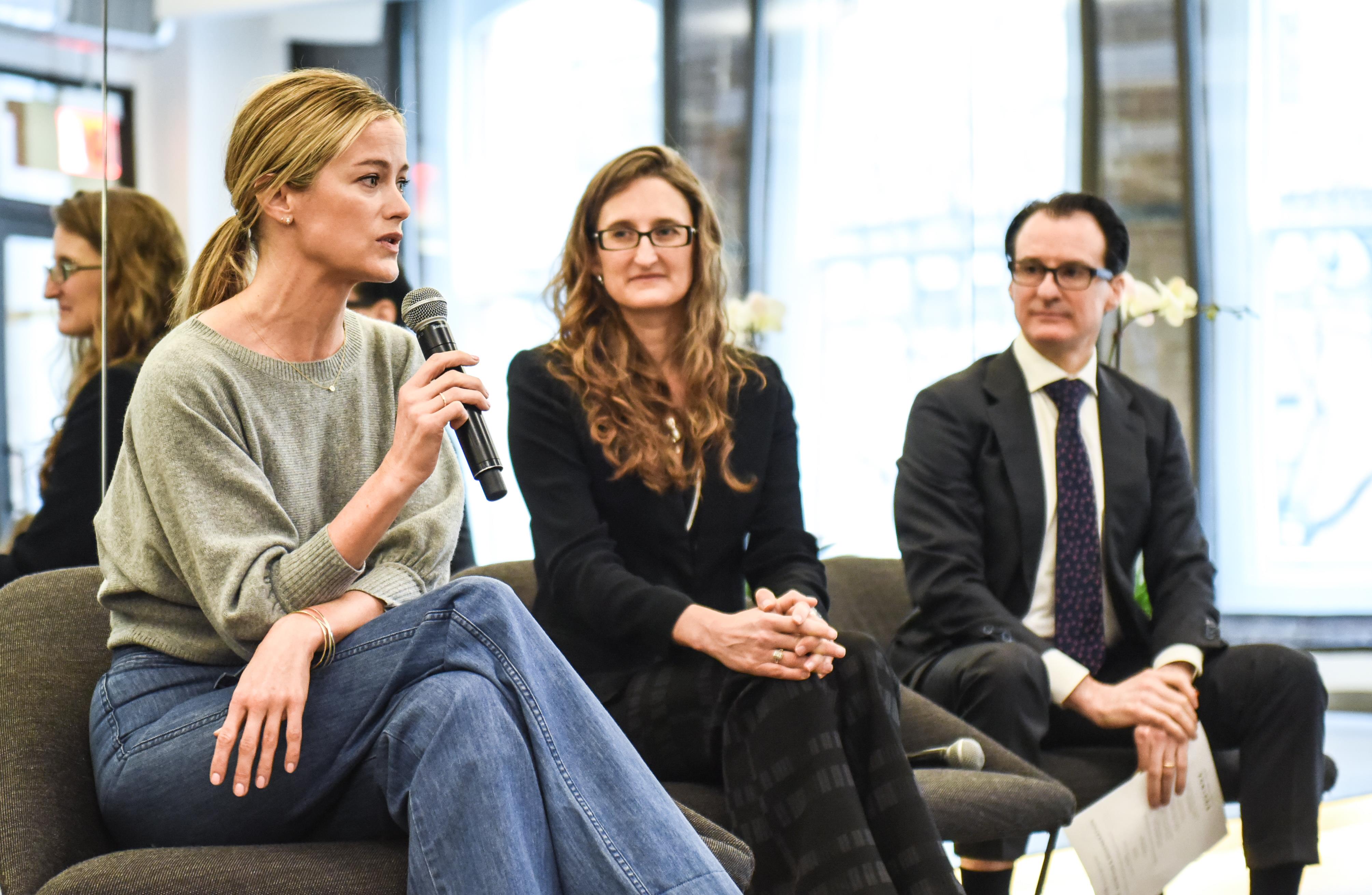Trust a supermodel to be a formidable mentor to an emerging generation.
Tuesday morning, during the CFDA Health Initiative breakfast and panel at Equinox Zero Bond Street, Murphy gave the audience of mostly models some insights into her career, and how it led her to embrace wellness at an early age.
“I have been in this industry for over 25 years,” she said. “My generation was very different. It was the 1990s. We did not have forums like this. We were nomadic, living out of our suitcases, and there was a lot of partying involved, which was what drove us. It’s unfortunate. I had to separate myself from the pack and that was not always easy when they are shoving champagne and prosciutto sandwiches in your face.
“I knew that I was going into burnout phase,” she continued. “I had adrenal fatigue. My cortisol system was completely whacked by the time I was 23, 24 years old. I sought out a healer, and she was able to help me with breathing work and that led into yoga and to a nutritionist.”
The panel was moderated by Vogue’s Senior Editor/Health and Fitness Coverage Lauren Mechling, and featured Jeffrey Morrison, M.D., Integrative Medicine/Family Practitioner, and Equinox’s VP of Health and Human Performance David Harris. Equinox is a proud partner of the Coalition for Health and Beauty, a program of the CFDA Health Initiative.
“Our focus is on movement, nutrition and regeneration,” Harris noted. “We decided some time ago that we didn’t want to just speak about exercise. We really wanted to talk about exercise in the framework of movement.” And so he introduced two trainers who demonstrated basic body weight exercises that models can practice while traveling.
The importance of sleep, routine and combating inflammation emerged as the key takeaways of the conversation.
Martin pointed out that the brain and body do not shut off during sleep – far from it. “The time our brain cleans itself and recovers, stores information and processes feelings all happens when we are asleep,” she said. “When you don’t sleep, there is a higher risk for medical problems, for depression, for feeling more anxious. If you sleep more, all of these things can be reversed.
“If you are sleep-deprived, we crave calorie-dense, high-salt, high-sugar foods,” she added. “The other thing is, it increases inflammation, and can result in the inability for the brain to clear waste.”
Morrison pointed to blood sugar control and a set routine as ways to limit sleep deprivation.
“The blood sugar component is something that could not be more confusing,” Morrison said. “There has been information that’s been passed down for the past 20 years that suggests that fat is bad. Fat makes you think; sugar is driving people to blood sugar fluctuations and irritability. We are talking about healthy fats, like avocados, and coconut creams.”
The panel agreed that whole food – the kind that doesn’t come in a man-made package but in its own package such as skins and shells – are a vital component to a healthy lifestyle. “An apple is a whole food, and if put that with almond butter, it’s a great thing,” Morrison said.
“Routines are also truly important,” he added. “If you are consistent about when you eat breakfast, lunch and dinner, and when you go to bed and wake up, everything else falls into place.”
The morning concluded with a guided meditation led by Michael Gervais.



